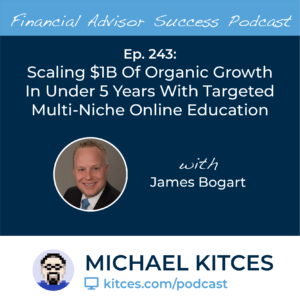In a world where it’s hard to regulate the wide and ever-changing world of advertising, one of the most common frameworks that regulators take is a ‘truth-in-advertising’ approach that simply requires whatever advertisers say or claim to be true and accurate. In recent years, regulators have begun to consider whether this approach should be applied in the world of financial advice, as consumers engage with both advice-providers and brokerage salespeople… all of whom use increasingly similar “financial advisor”, “financial consultant”, “financial planner”, and similar titles. Which has led to both the original SEC Regulation Best Interest proposal to restrict the use of the term “advisor”, and states such as Nevada proposing to regulate a(n even broader) list of titles that includes not only "financial advisor", but also terms like "financial planner", "retirement consultant", etc.
However, when it comes to understanding the extent to which “advisor” titles are truly confusing to consumers (or not), the research available has actually been quite limited. Is title confusion actually a big issue that severely leads consumers astray? And, to the extent that confusion does exist, what types of titles or policies might better promote consumer clarity?
A recent study published in the International Journal of Consumer Studies explored these questions directly, by testing (a) how consumers perceive "financial advisor" and similar titles, and (b) the extent to which clarity could be improved through the use of disclosures. The study found that, in practice, titles do matter, consumers do have substantively different expectations regarding both the competency and loyalty (i.e., trustworthiness) of those who use “financial advisor” or especially “financial planner” as their title in lieu of "stockbroker" or "insurance agent", and that more generally consumers do distinguish between sales-oriented titles and advice-oriented titles.
On the other hand, the research also shows that disclosures do matter as well, and in fact, when consumers see both a title and a disclosure, it’s actually the disclosure that was found to matter more. On the plus side, this means that the prospective harm of misleading titles (e.g., salespeople using advice-centric titles) can potentially be ameliorated by having clear disclosures about their true role as a salesperson or advisor. On the minus side, though, the research also shows that when disclosures are themselves not well crafted, consumers can misinterpret a salesperson to be subject to a higher standard than the title actually conveys as a result of the unclear disclosure.
Ultimately, this suggests that regulation of advisors in the future will likely necessitate a combination of both clearer oversight of titles, and the use of clear(er) disclosure. For instance, a ‘safe harbor’ approach of setting certain titles that can be safely used by salespeople or advisors, respectively, provides a framework for consumers to understand the types of people they can engage, and can be a good system to help bring the ‘whack-a-mole’ style of title switching to a stop. At the same time, though, further scrutiny of disclosures becomes crucial, as disclosures help to bridge the gap in consumer clarity for an ever-changing landscape of titles that may not (yet?) be regulated, but also run the risk of causing further consumer confusion if the disclosures don’t create an accurate understanding for consumers of whether they are engaging a product salesperson or an advice-provider.

 Welcome back to the 243rd episode of the Financial Advisor Success Podcast!
Welcome back to the 243rd episode of the Financial Advisor Success Podcast! Welcome back to the 242nd episode of the Financial Advisor Success Podcast!
Welcome back to the 242nd episode of the Financial Advisor Success Podcast!
